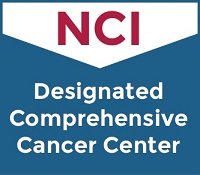Robotic Surgery for Head and Neck Cancer

As head and neck cancers in the tongue and tonsils due to human papillomavirus (HPV)-associated cancers become more common, our physicians have the expertise and technology to effectively treat these malignancies while minimizing side effects.
Treatment of head and neck cancers often leave patients with a challenging recovery — including swallowing problems that are significant in the short and long-term. That's why, at the University of Maryland Greenebaum Comprehensive Cancer Center, our multidisciplinary head and neck cancer team is incorporating robotic surgery into the treatment plan to reduce swallowing side effects and optimize quality of life.
Transoral Robotic Surgery (TORS)
At UMGCCC, head and neck surgeon Kyle Hatten, MD, who is fellowship-trained in robotic surgery, regularly performs TORS as do head and neck surgeons Rodney Taylor, MD, Jeffrey Wolf, MD, Bert O'Malley, MD and oral maxillofacial surgeon and head neck surgeon Joshua Lubek, MD. These surgeons use a collaborative approach to ensure an optimal treatment plans and excellent outcomes for patients.
Why Choose Robotic Surgery at UMGCCC:
- Many patients with HPV-related cancers will qualify minimally invasive transoral robotic surgery.
- Robotic surgery reduces, and potentially eliminates the need for radiation therapy, and often allows a patient to avoid chemotherapy.
- Robotic surgery reduces swallowing dysfunction after surgery for many HPV-related cancers
- Robotic surgery decreases length of hospital stay and recovery time following surgery.
- Robotic surgery is a less-invasive tool to identify and treat carcinoma of unknown primary in the neck.
Make an Appointment
The head and neck cancer team sees patients at a variety of locations in downtown Baltimore near and inside the University of Maryland Greenebaum Comprehensive Cancer Center.
To make an appointment with one of our specialists, please visit Locations and Appointments.


